Are all mental illnesses withdrawn, preferring to keep to themselves, having ideas and not communicating with others?
Schizophrenic hallucinations and delusions, in fact, they are no different from normal people. The difference is that people around them will look at them with colored glasses, alienate them, discriminate against them and isolate them.
Schizophrenics rarely hurt anyone, they live in their own world and are definitely not normal, point meds, point conditioning.
What you said about being withdrawn and uncommunicative some people may be born that way, others may be isolated and discriminated against, there's no way around it!
A schizophrenic will not initially admit that they are ill, but merely behave abnormally, which worries their family members. Family members may wu against their ideas and will force them to take them to the doctor, which I feel is also a disservice to schizophrenics. I think this is also a disservice to the schizophrenic, because they will feel isolated and full of enemies. The best way is to cajole them. Go along with him, tricked into taking medication, tricked into going to the doctor, tricked into hospitalization.
As long as they can realize they are sick, then everything after that is fine.
Schizophrenia has to be treated with medication. It is much better to take medication, and schizophrenics who have taken medication are no different from normal people.
I've only seen one serious patient screaming and flailing, and several male nurses worked together to subdue it. The patient was so strong, he seemed to be able to turn the world upside down. I've only seen this one serious case in the hospital.
The other patients are still normal. All can chat normally!
Schizophrenic patients are in pain. It's hard to control a person with a sick mind. Just like it's not easy for a normal person to hold in their laughter, it's not easy to hold in their tears. A hallucinatory delusional person knows they are sick and struggles to control themselves, so you can imagine how hard it is for them.
Society does not discriminate against the patient, discrimination against the patient only ill-informed people, thinking that once the schizophrenic this person is not normal, and abnormal people have nothing to communicate, and even afraid of being harmed by the patient.
It's actually a misconception that they shouldn't be discriminated against, and that they still have a normal mindset. They rarely hurt people. Patients may be kinder than you think.
If anyone has a schizophrenic around them please give them the benefit of the doubt!
Are all mental illnesses withdrawn, preferring to keep to themselves, having ideas and not communicating with others?
In fact, there is a case of such a sick young man in the neighborhood: the young man is very talkative, dressed in clean clothes, it can be seen that the family takes good care of, every time we meet, we take the initiative to greet each other, except that the way of greeting is a bit stereotypical: uncle, how many degrees is the weather today? What time is it now? Every time it is these two questions.
Analyzed from a broad perspective, mental illness is broadly classified into the following three categories:
I. Isolated, isolated and solitary: These patients may be present in the early stages of the disease or in the terminal stages of the disease.
Many patients, especially those with early onset of the disease, may simply be unwilling to have contact with others, which can be interpreted as a lack of willingness to have contact with others. Many parents report that their children have been reluctant to play with their classmates and have no close friends in the last 2 years. It is important to note that if the course of the disease extends to the unit of "year", it must be taken seriously, and it is not necessarily as simple as depression.
Other patients, as the disease progresses, become less and less talkative and less able to take care of themselves. This is likely to be a sign that the disease has entered the "decline" stage, where the chances of a cure are often slim.
II. Impulsive, noisy, with a tendency to hurt people:This type of patient may be more common or more feared in life. Most of the time, the impulsiveness of the patient is governed by psychiatric symptoms. For example, a patient who has hallucinations always hears people cursing him, saying bad things about him, and even thinks that someone is trying to kill him. By coincidence, it happens that when he says that the object of his hallucinations is someone in reality, he causes aggression and injurious behavior towards the other person.
Third, there are abnormalities in the logic of thinking:This group of people may not be recognized as unusual when they are not talking, but when it comes to a specific "point", they will "speak eloquently". For example, to quote an example from our textbooks, which sounds ridiculous and laughable: so-and-so thought: man evolved from animals, so people should not eat pork, and thought that animals evolved from plants, therefore, people can not eat vegetables.
In summary, we can understand that being withdrawn, preferring to be alone, and having thoughts that do not like to communicate with others are just one category of mental illness manifestations, which are so varied and numerous that it is impossible to find a complete record of them in books. I hope my answer is helpful to you, please pay attention, I will be updated daily related to medical issues.
Mental patients aren't all like that! My cousin was sent to a mental hospital by his mother, my aunt! I've been there, and I've seen it, and there are all kinds of mental patients in there, and when you're up close and personal with them, you have to stay away from them because they can't control their own behavior, and they may attack someone at any time!
In fact, some of the patients in the mental hospital, he or she does like to be withdrawn, like to be alone, have ideas do not like to communicate with others! However, there is also a part of the patient, he or she as long as they see a person, like a bird chirping endlessly! There is another kind of psychiatric patients, they can talk to themselves in the air, I saw them talking, singing and dancing alone, I really want to go to hand them a bottle of water to drink, but the doctor did not advise me to do so, because the doctor said that only they can hand them a bottle of water to drink, and that we strangers will be attacked by the psychiatric patients if we do so!
All mentally ill people are the weakest in this society, right? They are sent to mental hospitals by their families because they have become mentally ill for various reasons! These mental patients are poor people, because they are mentally ill, so they live in their own world, even if their relatives go to visit them, they do not recognize them! Therefore, I think the mentally ill also need to be cared for by the society!
Because, if everyone gives a little love, the world will become a better tomorrow! May every kind person be treated gently by the world 🙏🏻🙏🏻🙏🏻🌹🌹🌹🌹🌹🌹
Thanks for the invite, reading your question shows that you don't understand mental illness, so let me, who understands mental illness, tell you about it.
First of all, like many psychiatrists, I don't like to use the word mental illness because in our society, the vast majority of the time, the word contains discriminatory overtones, so we prefer to use mental disorders or mental illnesses to represent disorders related to psychiatry, a sub-discipline of modern medicine.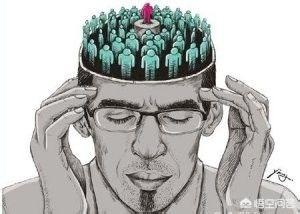
There are so many different kinds of mental illnesses that it's like a major medical illness? Surgical diseases? Respiratory diseases? Endocrine diseases and other sub-disciplines. What you're describing is only true for some people with some mental illnesses, and it's not accurate to say that they like to keep to themselves and have ideas that they don't like to communicate with others.
I am a psychiatrist who has been working for more than 10 years. As far as the patients I have come into contact with are concerned, it is true that some hospitalized schizophrenic patients are withdrawn, solitary, and unwilling to communicate with others, but it is still necessary to look at the reasons behind this kind of behavior. For example, some patients have obvious hallucinations and delusions, and initially they will simply tell their family members what they "hear" and "think", but after getting their family members' lack of understanding and negativity, over time, they will not allow their family members to understand their real experiences and real thoughts out of self-protection; and some patients with schizophrenia who are hospitalized in my contact with patients do behave like loners and do not want to communicate with others. There are also some non-first-episode patients who know that if they tell their family members what they have heard and thought, they will think that they have committed a crime and may be sent to a psychiatric hospital, so they do not reveal the content of their thoughts out of self-protection. Therefore, out of self-protection, they do not reveal the content of their thoughts.
In fact, the real practice should be based on the establishment of full trust, the patient will suffer from the disease and the possible emergence of psychiatric symptoms are informed of the patient, and suggest that the patient again similar psychiatric symptoms the first time to inform their own doctor, so that the doctor can be the first time to grasp the patient's condition changes, the treatment to make timely and scientific adjustments, so that the patient can be assured of obtaining the most timely and most reasonable treatment. Many people think that it is easy to say but simply cannot be done because people with mental illness are inherently difficult to communicate. In fact, if you give them more understanding and care, and build up more trust in each other, they will still trust you slowly and dare to share the changes in their symptoms with you. As for trust, I believe you as family members should be able to build up enough trust with your patients more easily than we doctors do.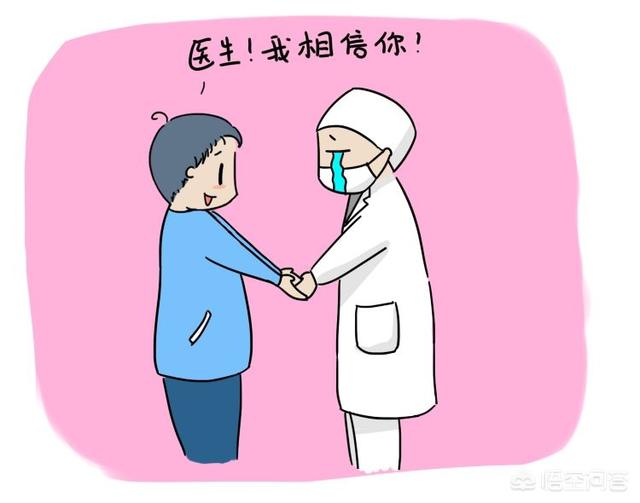
In fact, there are still a lot of mental illness and you say just the opposite, let's say the manic episode of the patient, usually like to get together, enthusiastic, where there is something can not do without her, speak eloquently, and even difficult to interrupt, have ideals, ambitions, and even the existence of obvious exaggerated color, most of the time is not do not love to communicate with others, but you want to not listen to her communication can not be done.
Mental illnesses come in all shapes and sizes, but there is a common feature, that is, governed by mental symptoms, the patient's indifference or warmth, are not their own subjective will, but the disease to bring them forced changes. To put it simply, "whether they laugh or cry, they are all bitter people!" What the mentally ill need is not discrimination from society. What the mentally ill need is not social discrimination, but the understanding and care of the community at large, and the recognition of the general public. After all, our country has 180 million people with mental disorders, how to do a good job of resettlement of this huge group is not simply a medical problem, but a social problem.

I hope that my answer to your questions will help, but also hope that more people pay attention to this huge group of people, if you can please help to forward the comments and praise, so that more people see the story of this group of people. Medical science popularization, you and I walk together!
It's not stupid to know how to be alone!
We have 2 psychopaths in our neighborhood, both young males in their 30s.
Let's start with the first one. People in our neighborhood call him Ah Chiu. He is probably the most handsome psychopath in history. He's 180 tall, born a soldier, and used to be in the army. In the army, the old folks fought and got their heads bashed in. Then retired home, the head is not good treatment, he slowly became a neuropathy. The first time I saw Ah Chiu from the army hospital back, that handsome ah? His body was full of muscles and he had a good temperament. You couldn't tell he was a psychopath!
Ah Chiu has been back for 4 years, he usually doesn't exercise. He has gained a lot of weight and he plays handsome all day long. A year ago, he just dyed a head of purple hair, and played 2 ear holes, earrings long. He is in a good mood, and sometimes he has to change his clothes 3 times a day. His favorite thing to do is to dress up and ride an electric bike down the street to look at pretty girls.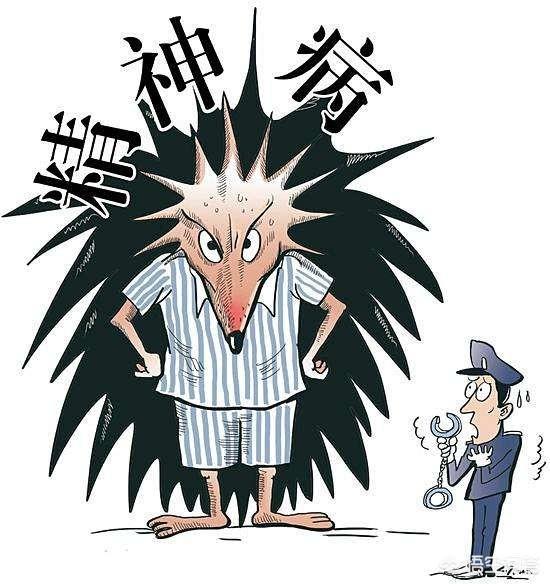
When he has a fit, he pins his mom to the ground and beats her. Once put my son's classmate's mother almost strangled to death, that day he had a seizure, saw my son's classmate's mother ran forward, and forcefully put the person's neck strangled. Finally, my son's classmate's father came to her rescue, but the result was not able to beat the former military ah tide. In the end, three police officers came to save the son's classmate's mom. Ah Chiu is really a particularly dangerous psychopath, he is too good. He loves children and often pinches their faces when he sees them without adult care.
Ah Chiu's mom wanted to get Ah Chiu a wife and arranged for a girl who was a bit mentally handicapped. Ah Chiu didn't like it, he said he likes thin, pretty girls! I really don't understand how someone like Ah Chiu, who is pickier than any normal man, who can dress up and be handsome, could be a psychopath!
Plus another psychopath ~ Smokehead! Smokehead used to be a school bully. When he was in high school, his classmates got into a fight, and his brain was broken. Smokey doesn't like to dress up, he's unkempt. At a glance, you can tell he's a psychopath. Smokehead likes to pick up cigarette butts on the ground and smoke them. That's why we call him Smokey. When Smokey doesn't have an attack, he's like a little kid. Like a child, like to eat snacks, like to walk around. Likes to play with the sand with small children.
The year before last, I saw Smokey helping his mom pluck chicken feathers, and the plucking was quite clean! Smokey's dad died of liver cancer a few years ago, and he was the one who kept vigil for him on the seventh day of his life. His brother sleeps in, and his mom says it's a shame that he's brain-dead, but he's actually more filial. So Smokey's mom worked hard to earn money to buy medicine for Smokey's hospitalization.
At the onset of the cigarette, he took a fruit knife in the middle of the night and practiced martial arts in the square. Said he is the world's first martial arts master, the onset of the onset is also the old mother on the ground to beat. His mom called for help, and his brother could not beat Smokey!
These two psychopaths are time bombs in our neighborhood. Smokey is hospitalized in a neurological hospital half the year. Tide is not hospitalized, he just tosses and dresses himself every day and has fewer episodes. So neurotics still need to get something to keep them busy, and when they are busy they are less likely to have an attack.
To avoid not getting hit by a psycho, we all avoided it! Being neighbors with a psychopath, we're really on edge!
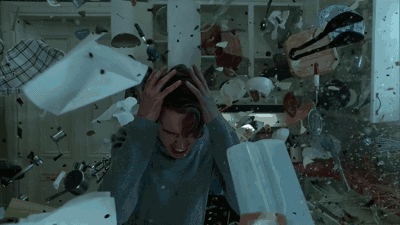
Not always. Some mental illnesses are like a dog bouncing off the walls without a moment's honesty.
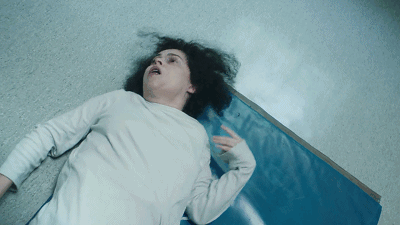
My original enterprise small Yang, good guy, from me into the unit nearly 20 years, did not see him stop for a while. This kid is a generalist, on the knowledge of astronomy and geography, eighteen arts and crafts all know how. Because of this, from the workshop was transferred to the factory labor union as a sports officer.

Now there is a place to use, cultural activities take the lead in singing, soccer matches lead the team on the field, chess and Xiangqi a person against five, the first speech contest on the field, every day on the factory newspaper have his news, poems, novels, essays, and even the young people to get married to look for him to be a matchmaker ......

Usually nothing to do can which string, which gathering pile to where to get together, do not go over to shout a few voices can regret half a month. One evening, after dinner, went out to walk half a day did not come home, his son had something to look for him to play the phone does not answer, anxious to go downstairs to find him.
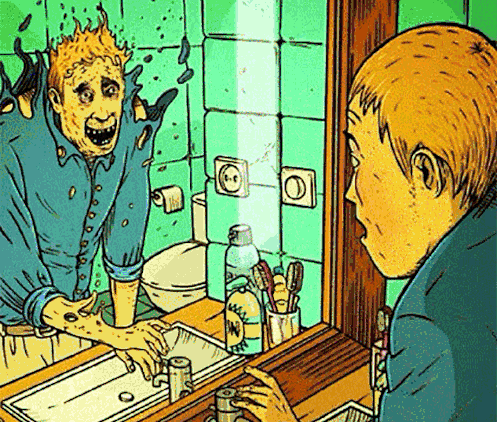
The son searched and searched, and suddenly realized that his dad was chatting with an old lady at the head of the building. When he got home, he said to his mom, "Mom, guess who my dad was talking to?" Mom asked who. My son said, "The deaf and dumb granny in our yard."

Later, I met an old colleague after leaving the business for many years and asked him about Xiao Yang, he said, "Not long after you left, Xiao Yang was hospitalized." I asked what kind of illness. He said, "Mental illness."
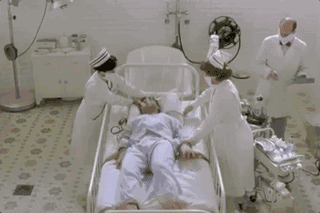
A counseling smith takes you into your inner world, like to follow!
On that note, I'd like to give you a little bit of science on what is really going on with psychopaths and what their inner world is like you'll understand if that's the case.
Here I think the mental illness you mention would be schizophrenia, and I'll give you a little bit of schizophrenia here for now.
We often disparage these people in our lives, calling them "psychopaths" or "psychotic", when in fact most of us are describing the "schizophrenic" group.
History of schizophrenia
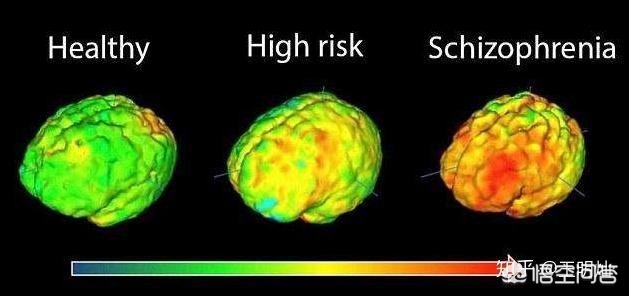 First of all the word schizophrenia was coined by a Swiss doctor called Eugen Bleuler, and the English name for schizophrenia is schizophrenia. the word, which is derived from the Greek word, skhizein which means to split, and phren which means to spirit, a combination of the two words.
First of all the word schizophrenia was coined by a Swiss doctor called Eugen Bleuler, and the English name for schizophrenia is schizophrenia. the word, which is derived from the Greek word, skhizein which means to split, and phren which means to spirit, a combination of the two words.
As many believe, in the beginning these doctors believed that they had no personality integration, so they were fractured inside.
But in the beginning doctors only explored the basic functional aspects of personality, and then when people started exploring psychopaths they tended to focus more on their psychiatric problems, which was different enough to end up with the belief that most schizophrenics were multiple personality living split personality patients.
Clinical description, symptoms
Schizophrenia comes in many forms with varying degrees of severity. But no matter what, the main theme of the disease remains consistent. People with schizophrenia always feel that their thoughts are making noise. In the past this was called hallucination, but today it can often be understood as if the CIA had implanted a listening device in the patient's mind. They also imagine that other people can read their thoughts, and so tend to anthropomorphize everything to the point where they may think that TV newscasters are sending them secret messages as well. Paranoid schizophrenia allows sufferers to develop all kinds of strange and bizarre conspiracy theories, which can lead them to refuse treatment. Considering that there are many ways in which the brain can become dysfunctional, such a coherent pattern suggests that schizophrenia is a single disorder rather than a collection of similar conditions.
Emotional changes: After suffering from schizophrenia emotions become cold, lose the previous enthusiasm, care for relatives, lack of proper emotional communication, alienation from friends, not interested in things around, inexplicably sad or elated or lose temper over a small matter, etc..
sensitive and suspicious: A typical symptom of schizophrenia is sensitivity and paranoia, where the patient often associates himself with his surroundings and believes that everything is directed against him.
In clinical practice, psychiatrists also make more differential diagnoses, such as distinguishing between "positive" and "negative" symptoms of schizophrenia. In addition, there are "disintegrative symptoms".
positive symptom, generally refers to symptoms related to reality distortion, such as hallucinations and delusions.
negative symptom, involving normal behavioral deficits in certain areas, speech, feelings, and motivation.
Disintegrative symptoms, including disorganized speech, odd behavior, and out-of-place emotional responses. For example, they smile when they are depressed and get excited when they are sad.
With regard to the diagnosis of psychosis it is necessary to look at the duration of the other person, generally at least the symptoms mentioned above must be more than a month old before a diagnosis of schizophrenia is possible.
Causes of disease
The causes of psychosis are so complex that there is actually no single doctrine that can fully explain psychosis.
However, the current academic community generally believes that genetic-biological causes, psychological personality causes, and social causes of stress are involved.
Among genetic causes, in 1938, Fran Kallmann published a large-scale study of families of schizophrenics, in which he found more than 1,000 patients diagnosed with schizophrenia in Berlin psychiatric hospitals and surveyed their families. It was found that the severity of the parents' disorder affected the probability of their children developing the disease; the more severe the parents' schizophrenia, the higher the probability that the children would develop schizophrenia.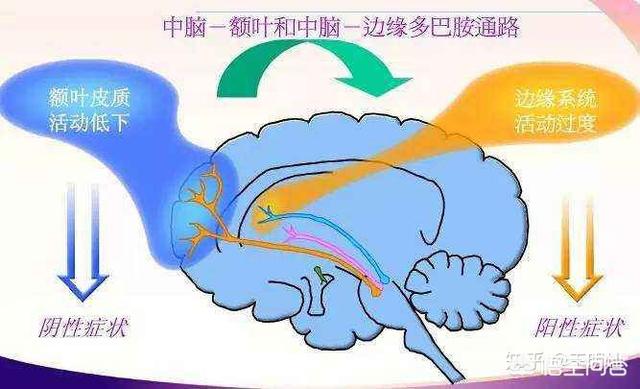
Scientists later studied the brains of some post-death psychiatric patients and found that some parts were a little different from normal, for example, there was conclusive evidence that led researchers to believe that schizophrenia was partly the result of overstimulation of the dopamine receptor D2 on the striatum.
There was also the finding that there was a lack of stimulation of the prefrontal dopamine D1 receptors in their brains, which led to some strange degenerative behavioral disorders that limited their activities.
In the psychogenic theory, in which a large number of studies have found that early childhood trauma can seriously affect a person's mental mental health, it has been found that children who have experienced sexual abuse and some blows of abuse in their early years grow up to be more or less dysfunctional personalities as adults.
There is also the fact that stress disorder events in some people's lives can also lead to some psychotic symptoms in a person.
How to fix schizophrenia
Schizophrenia is the same as many other diseases, and people with schizophrenia are not "crazy" in people's eyes, their symptoms can be controlled or even cured through treatment. With early detection and treatment, and attention to the full management of the disease, schizophrenic patients are able to recover their social functions and return to normal social life.
Antipsychotic drugs play an important role in the treatment of schizophrenia. Supportive psychotherapy, improvement of the patient's social life environment and rehabilitation measures to enhance the patient's social adaptability are also very important. Generally, in the acute stage, drug treatment is the mainstay. In the chronic stage, psychosocial rehabilitation measures play an important role in preventing relapse and improving the patient's social adaptability.
Antipsychotic drugs, also known as nerve blockers, are effective in controlling the psychotic symptoms of schizophrenia and have been widely used in the clinic for more than 40 years, significantly improving the rate of remission of psychotic symptoms and the rate of discharge of psychotic patients. Some authors counted nearly 100 (AF Lehman, 1998) double-blind controls and found that antipsychotic drugs can have significant efficacy on about 50% to 80% of the positive symptoms of schizophrenia, while the control placebo is only about 5% to 45%.
After the acute phase of symptoms, psychotherapy is also very important, because some psychiatric patients are caused by early trauma and various personality defects, so psychotherapy to improve the personality is also very critical, due to the poor self-awareness of psychiatric patients, the accompaniment of family members is particularly important in this process, urging them to receive regular psychotherapeutic help after the acute phase of drug treatment.
As a final reminder.Schizophrenia can control the symptoms and achieve clinical cure through treatment, and mental illness patients and their families should actively go to professional and regular hospitals to save their lives.
Hello, I am a counselor Chengdu autumn water long day, I come to answer your question, I hope it can help you!
First of all, mental illness is not within the scope of a counselor's work, that falls within the scope of a psychiatrist's work.
Secondly, the main symptom of psychosis is the presence of hallucinations and delusions. Simply put, there is an inability to distinguish between psychological reality and objective reality. There is no sense of reality.
Thirdly, as a manifestation of mental illness it is not as the subject suggests, and the conditions described in the subject's stem tend to be more closely related to mental illnesses or mental and physical illnesses such as autism, autism, etc. Rather than a manifestation of psychosis. Psychosis is a much more serious mental illness in terms of mental health than neurotic disorders like autism, depression, etc.
Mental illness is actually quite pathetic, not knowing whether it's hot or cold, good or bad immersed in their own world! We have a girl, the high school let someone take the place of, study can be good, crazy! I see her every day, she's always griping and cooing, it's pathetic! There are many reasons for mental illness! There are family clusters of genetics, there are emotional shock, there is shock ... please do not discriminate against them, are poor people that! And it's the guardians' responsibility to keep an eye on them so they don't cause harm to others.
This question and answer are from the site users, does not represent the position of the site, such as infringement, please contact the administrator to delete.